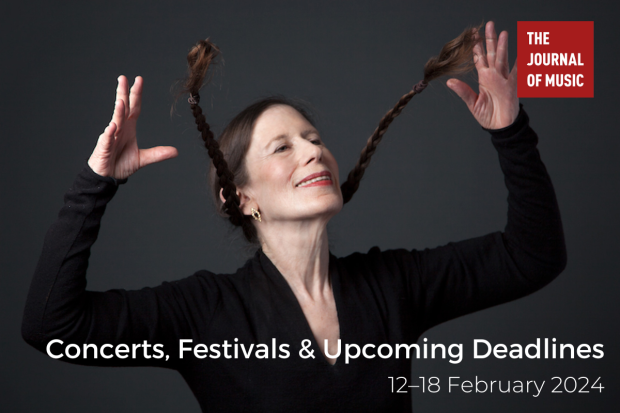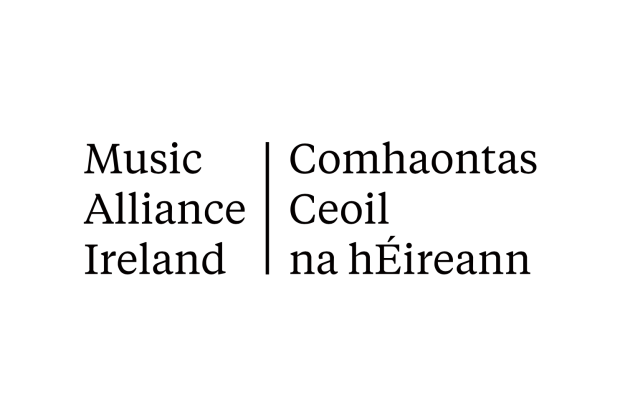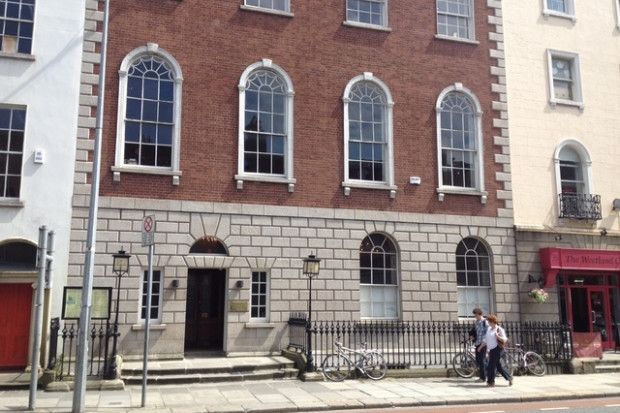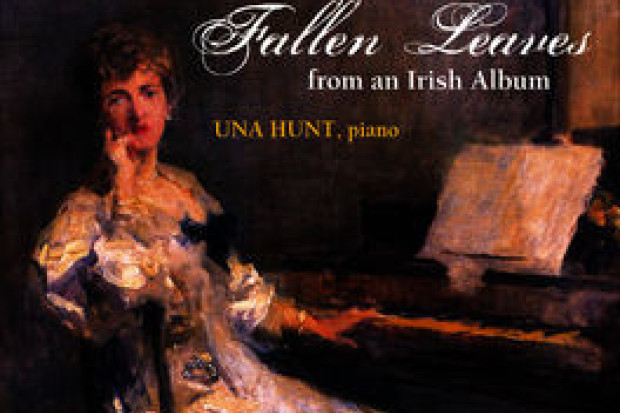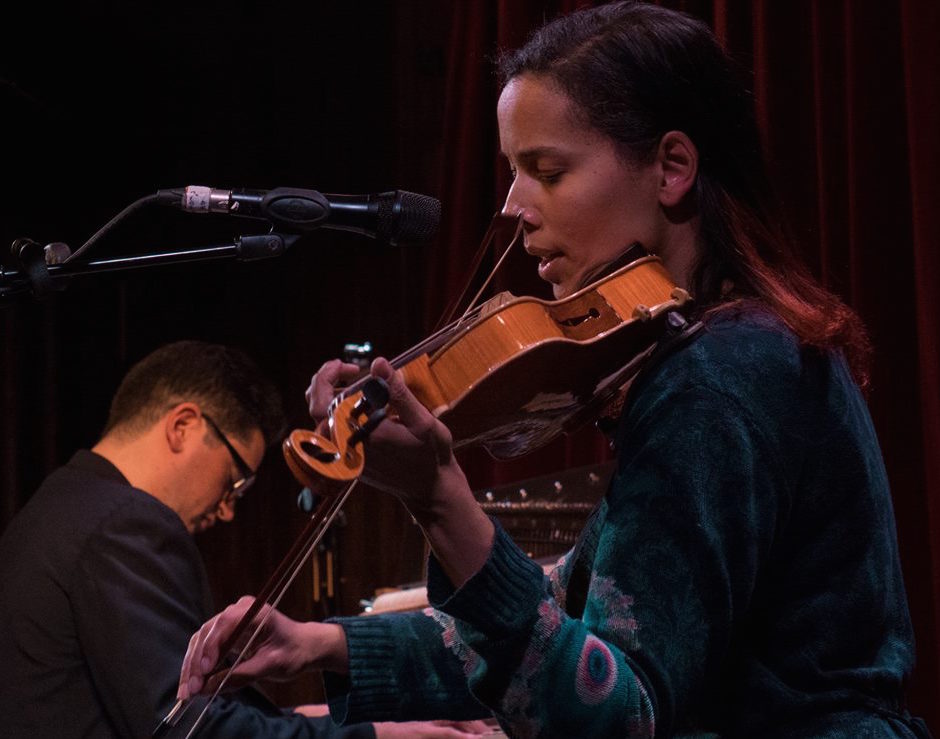
Francesco Turrisi and Rhiannon Giddens (Photo: Ronnie Norton)
Dark Clouds Will Gather 'Round Me
It was a full Sugar Club in Dublin that welcomed two of Ireland’s most eclectic musicians, Rhiannon Giddens and Francesco Turrisi, for the start of their 11-date Music Network tour. Giddens, originally from North Carolina but resident in Limerick for over a decade, is a founding member of the old-time band Carolina Chocolate Drops, an award-winning solo artist, and has just released an album as a member of US folk group Our Native Daughters. Turrisi, from Italy and deeply involved in the Irish music scene for many years, is primarily a contemporary jazz and early-music player, but he has a tremendous musical range. Just last month, he performed in a curious concert, Anakronos’ The Red Book of Ossory, which was a realisation of music from a medieval Irish manuscript of texts by Richard de Ledrede. Also in February, Giddens and Turrisi performed in the premiere of a ballet, Lucy Negro Redux, for which they had written the score.
Although the Carolina Chocolate Drops’ 2010 Genuine Negro Jig is one of my favourite albums, I have been disappointed by Giddens’ subsequent solo work, which I find pleasant but its musical horizons just soft Americana. Turrisi, too, is an exceptional musician but has tended towards conventional in his recordings. Yet there is an edge to his music that is individual – the early-music and world influences that occasionally shine through (as for instance in the Italian and Irish songs on his 2013 Grigio). So my hope going into the concert was that we would see these musicians only at their frank and adventurous best.
This was an intimate set, with just the two of them on a simple stage. But it was still expansive. It opened with a song written by Giddens, with Turrisi on an oud-like instrument, about how slave girls in the time of the Arabic slave trade were ‘valued’ – which in that context meant commodified – for their repertoire of song. Giddens’ searing voice was compelling in relating this desperate cruelty, and Turrisi supported sensitively.
From here, the concert moved from Appalachia to England to India (sometimes in the same piece, as in a standout song, ‘Fair Margaret and Sweet William’, an English ballad learnt from the Appalachian musician Sheila Kay Adams, with Turrisi accompanying on a Sufi tambourine), plus original compositions by Giddens and Turrisi dotted in between. They changed instruments as frequently and fluently as they did genres: fiddles, banjos, tambourines, an ‘una corda’ piano (a piano made by David Klavins with Nils Frahm that only has one string per key, giving it a light, even ethereal quality) and more were on stage.
It was an ambitious approach, but the concert was never eclecticism for its own sake. A deeper coherence came from the leitmotif of displacement; beneath the charming melodies and light textures there was a bitter political rage.
Political moments
The displacement of Arab slave girls was echoed in songs such as ‘Wayfaring Stranger’ (‘I know dark clouds will gather ‘round me / I know my way is hard and steep’); Giddens’ own ‘At the Purchaser’s Option’ explored the bondage of American female slaves; and ‘Pretty Saro’ was about forced economic migration. There was even a political element in some of the instrumentals, not only in Giddens’ re-appropriation of minstrel tunes, but because of the instrumentation: Giddens played a minstrel-tuned banjo (with a lovely tenor) that is closer to its African forebears, and Turrisi played tambourine in the Italian folk tamborello style that is also the way minstrel bands played it. (Turrisi threatened discourse on how the styles ended up so similar; I for one wanted to hear more.)
The most explicitly political moment came with ‘Factory Girl’, to which Giddens appended some verses in commemoration of the death of over a thousand people in a Bangladeshi factory in 2013. The factory, Giddens reminded us, manufactured clothes for companies including Benetton, Mango and Primark, clothes we all wear. ‘A truth of the world settled into the ashes / The rich man’s neglect is the poor man’s grief.’
Music is never disconnected from politics, and to pretend otherwise is a bowdlerisation that is a musical as well as political failure. Giddens knows this, and, through the minstrel tunes, and her ballad of the slave girls, I interpreted her as implying that there is a particular obligation on African-Americans to not suppress music’s capacity to accuse, lest they become modern-day minstrels. This political vision gave the whole concert urgency.
Risk-taking
I wish I could say, though, that the night was as consistently acute. The final verses of ‘Factory Girl’, about the collapse of the factory, were coloured with inspired funeral knells on Turrisi’s piano, but Giddens’ singing, normally powerful and pure, occasionally broke into melismatic flights that seemed to lose sight of the tragedy.
This was perhaps the most inexcusable lapse. For the most part, any failures were only the failures of over-ambition. Giddens’ Appalachian singing sounded like it came from her deepest part, but when she sang Italian or English folk, she sounded not quite at home. Yet this sort of musical risk-taking is admirable (especially in a concert threaded through with migration), and, without it, we would not have had one of the concert’s most surprising successes: Giddens’ fine rendition of Irish lilting that was at once individual and playful, and which modulated into American scat singing in a way that – somehow! – was natural and delightful.
This concert, more than I had dared hope, revealed a fresh intensity and courage in both Giddens and Turrisi. Giddens benefits from Turrisi’s sophisticated, understated accompaniment, and she, in turn, by her political dedication, gives his virtuosity purpose. I am excited to see where the partnership will lead.
Rhiannon Giddens and Francesco Turrisi perform tonight (12 March) at the Station House, Clifden, at 8pm, followed by Glór, Ennis (13 March), Regional Cultural Centre, Letterkenny (14 March – sold out), the Black Box, Belfast (15 March – sold out), and the Riverbank Arts Centre, Newbridge (16 March – sold out). For more, visit www.musicnetwork.ie.
Published on 12 March 2019
James Camien McGuiggan studied music in Maynooth University and has a PhD in the philosophy of art from the University of Southampton. He is currently an independent scholar.













